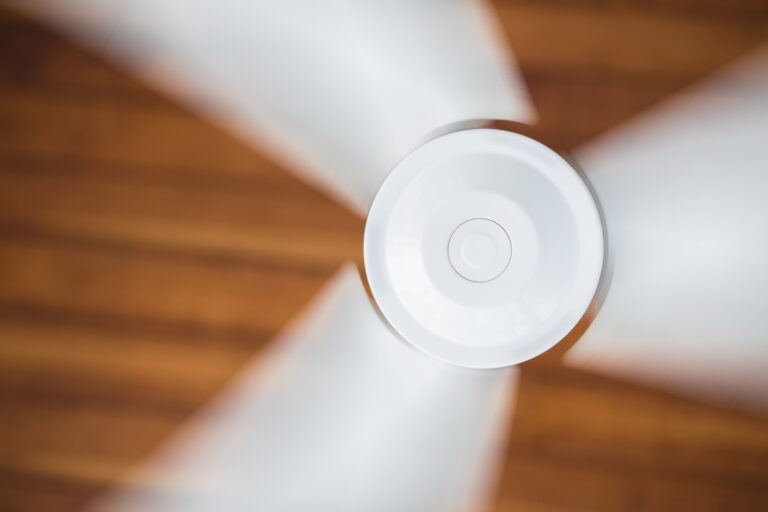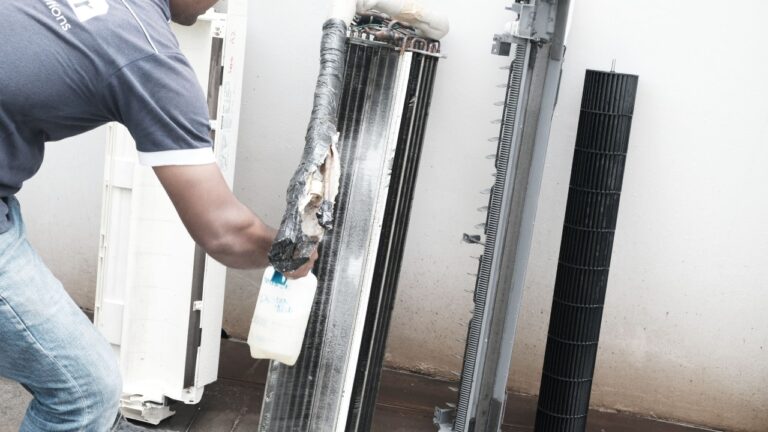Plants are beautiful and such a joy to care for so it’s no question that the indoor plant trend is taking the world by storm. On top of their aesthetic qualities, wouldn’t it be great to know which plants you should bring up on your to-buy list based on how well they do in our climate as well as their air-purifying benefits?
I’m sure we all know plants help to oxygenate air as they photosynthesize. Through a process called photosynthesis, plants absorb light, carbon dioxide, and water to manufacture sugars. The by-product of photosynthesis is precious oxygen humans need to respire. On top of that, plants also help to circulate the air in the room via transpiration. One less known benefit of plants is that they can help reduce the amount of volatile organic compounds (VOCs) in a room. Some common harmful VOCs that can be found in homes are benzene (found in certain plastics, pesticides, plastics and cigarette smoke), formaldehyde (cosmetics, detergents and various cleaning agents). And last but not least, plants release negative air ions that help to reduce the amount of tiny pm2.5 particles in the air.
Here are 5 indoor houseplants that grow well in Singapore’s warm humid weather.
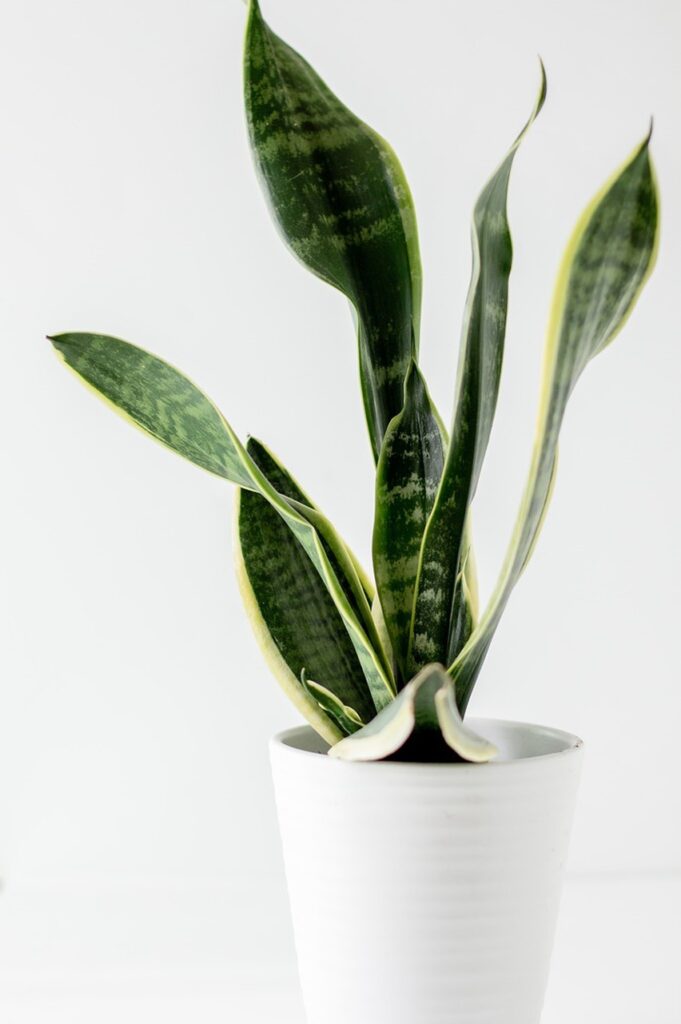
Snake Plant (Sansevieria Trifasciata ‘Laurentii’)
The snake plant is one of the most common indoor plants because they grow so well in low light conditions. There are so many different varieties of snake plants in all shapes and sizes to suit your preferred aesthetic. They are also really low maintenance plants that don’t need to be watered very much at all (about one thorough watering every 2 weeks is good enough). They are often used in offices as dividers and also help to remove harmful VOCs that can be released into the air from furniture, fabrics, printers and so on. The variegated snake plant is also one of the few plants that have been shown to remove toxic trichloroethylene from the air (though mostly phased out in food and pharmaceutical applications, it is still used in degreasers). Having a few plants around always makes a person feel more at ease and comfortable, making a space more conducive for work and rest alike.
VOCs removed by plant in controlled study:
– Benzene
– Formaldehyde
– Trichloroethylene
– Xylene
– Toluene
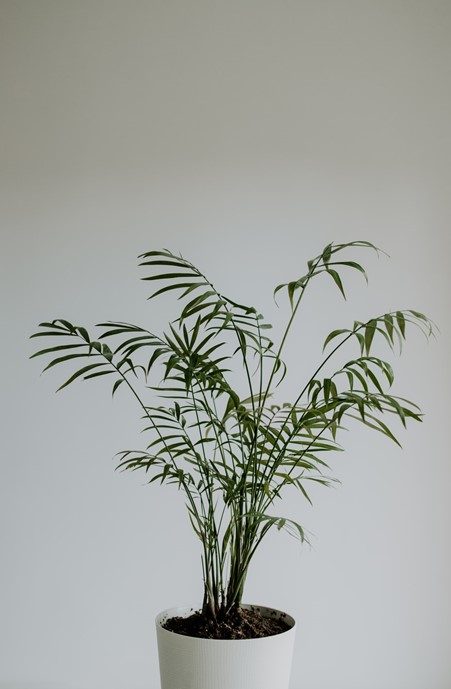
Bamboo Palm (Chamaedorea seifrizii)
This attractive decorative palm is great for both indoors or outdoors. It’s relatively slow growing and requires little maintenance. Watering when the first 1inch of soil feels dry and place it in a bright shady spot to watch it flourish.
VOCs removed by plant in controlled study:
– Benzene
– Formaldehyde
– Trichloroethylene
– Xylene
– Toluene
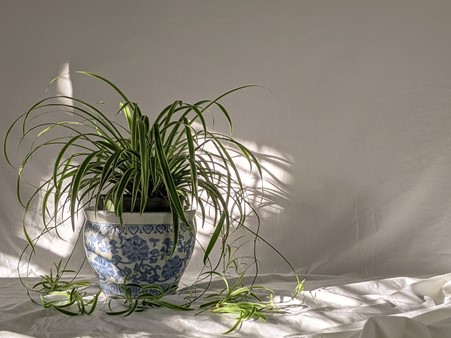
Spider Plant (Chlorophytum Comosum)
The spider plant gets its name from the way its long, narrow leaves growing in rosettes drape over the edge of the pot. This plant will be an interesting addition to any space that needs livening up! It requires more water, about once a week, to ensure the soil doesn’t completely dry out. But as with most plants, it’s best not to overwater as that can lead to root rot. If ever in doubt, err on the side of watering less. Plants can often handle being under watered, but once they get root rot from over watering, it can be difficult to bring them back to health. This plant prefers bright shaded light.
VOCs removed by plant in controlled study:
– Formaldehyde
– Xylene
– Toluene
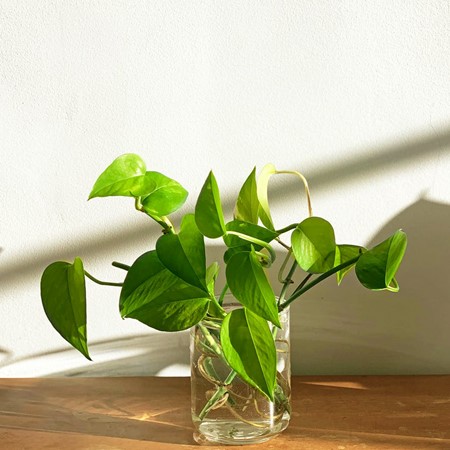
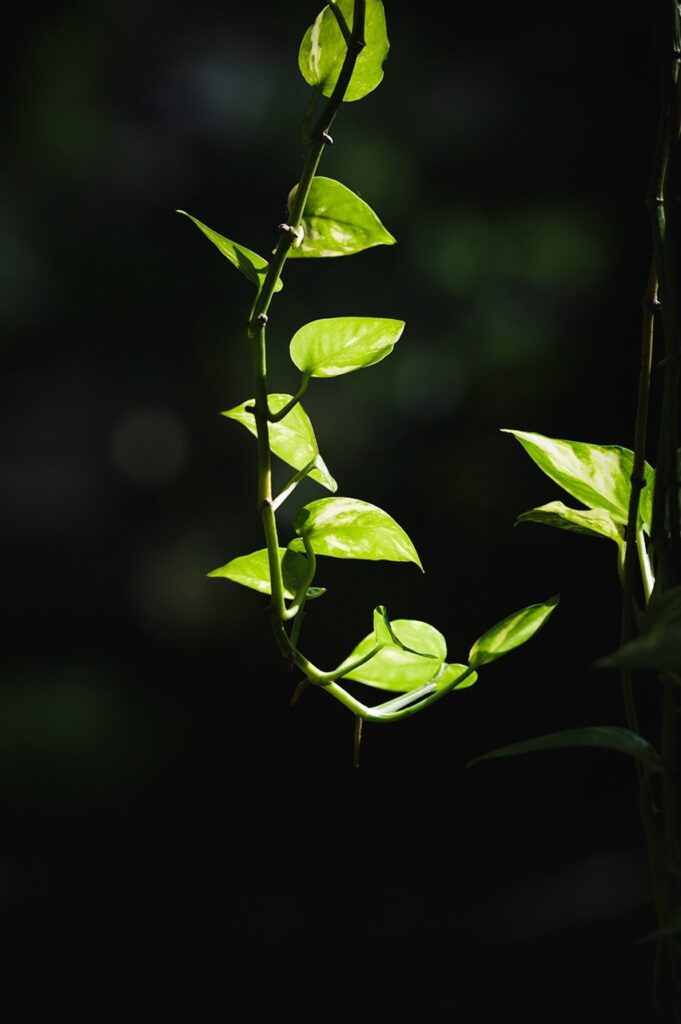
Pothos or Devil’s Ivy (Epipremnum aureum)
The Pothos is one of the most common indoor plants. Not just because it looks good but because it’s so easy to care for. The Pothos is one of those ‘indestructible’ plants that can handle a wide range of environmental conditions. It prefers bright shaded light and moderate watering. The plant will tell you when it needs more light when it starts to look a little paler. It’s a beautiful vining plant that will add a unique aesthetic to any space.
VOCs removed by plant in controlled study:
– Benzene
– Formaldehyde
– Xylene
– Toluene
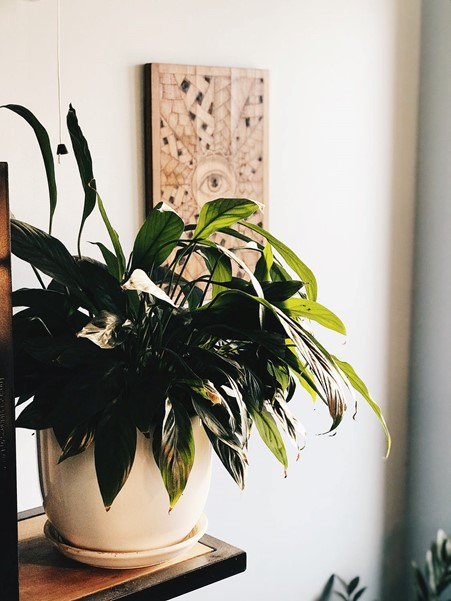
Peace Lily (Spathiphyllum)
Peace lilies live best in shade and requires little sunlight to thrive. Watering requirements are also moderate, once a week should more than suffice. Check to see if the soil is dry before watering thoroughly. Peace lilies can be found easily in most plant nurseries in Singapore, as with all the other plants we’ve mentioned above. Good to note that the plant is mildly toxic. It is safe to handle but when ingested by humans or pets can have some negative side effects like burning sensations in the mouth and nausea.
VOCs removed by plant in controlled study:
– Benzene
– Formaldehyde
– Trichloroethylene
– Xylene
– Toluene
– Ammonia
Though the NASA Clean Air (our reference for all toxin removal information) has shown that each plant is able to remove certain toxins from the air. It was done in a controlled environment and does not reflect the plant’s true capabilities in a space such as your room or office. More recent research has found that the effects on toxin removal by plants in practical situations are quite insignificant compared to that of mechanical air purifiers. You’d need a forest type situation for any noticeable effects. So if you’re concerned about toxic build up in the air in your space, it would be better advise to install a mechanical air purifier or upgrade your existing aircon to double as an air purifier with our easy to install UV Photo-catalyst Filters for peace of mind. Our UV Photo-Catalyst Filters are able to destroy 99% of airborne bacteria and degrade 99% of VOCs in the air within a couple of hours. They also help to reduce unpleasant odors that could be caused by new furniture, paint or pets. It can be easily installed under 10 minutes by our experienced technicians on all indoor wall mounted air-conditioners. Not only will it help you save on purchasing a dedicated air purifier, it also frees up space that would have been occupied by one. But of course, no one’s stopping you from having a room full of plants either! Though they may not have the best air purifying effects, they are always a nice addition to any space, making one feel more relaxed, and that’s more than enough! Happy plant shopping.
